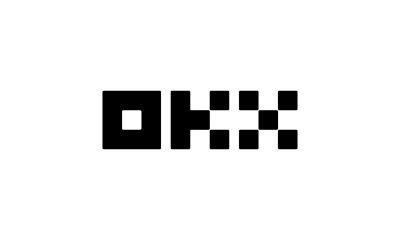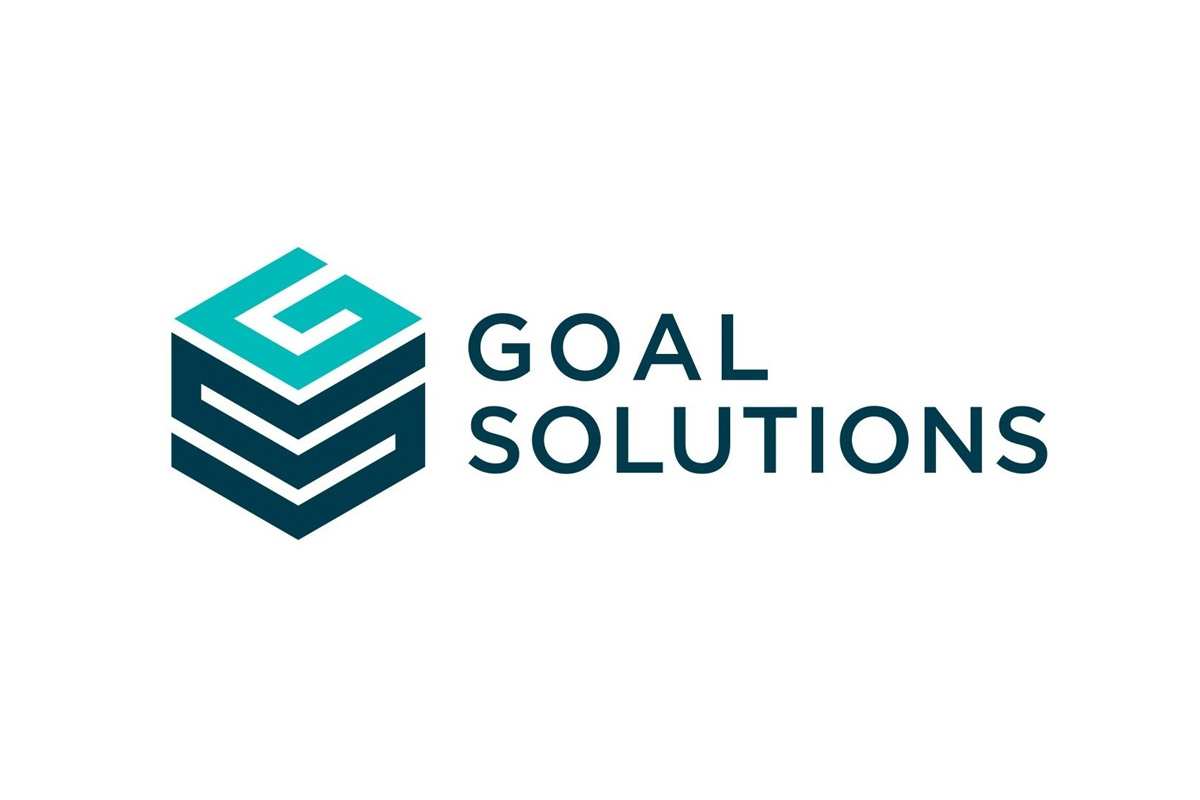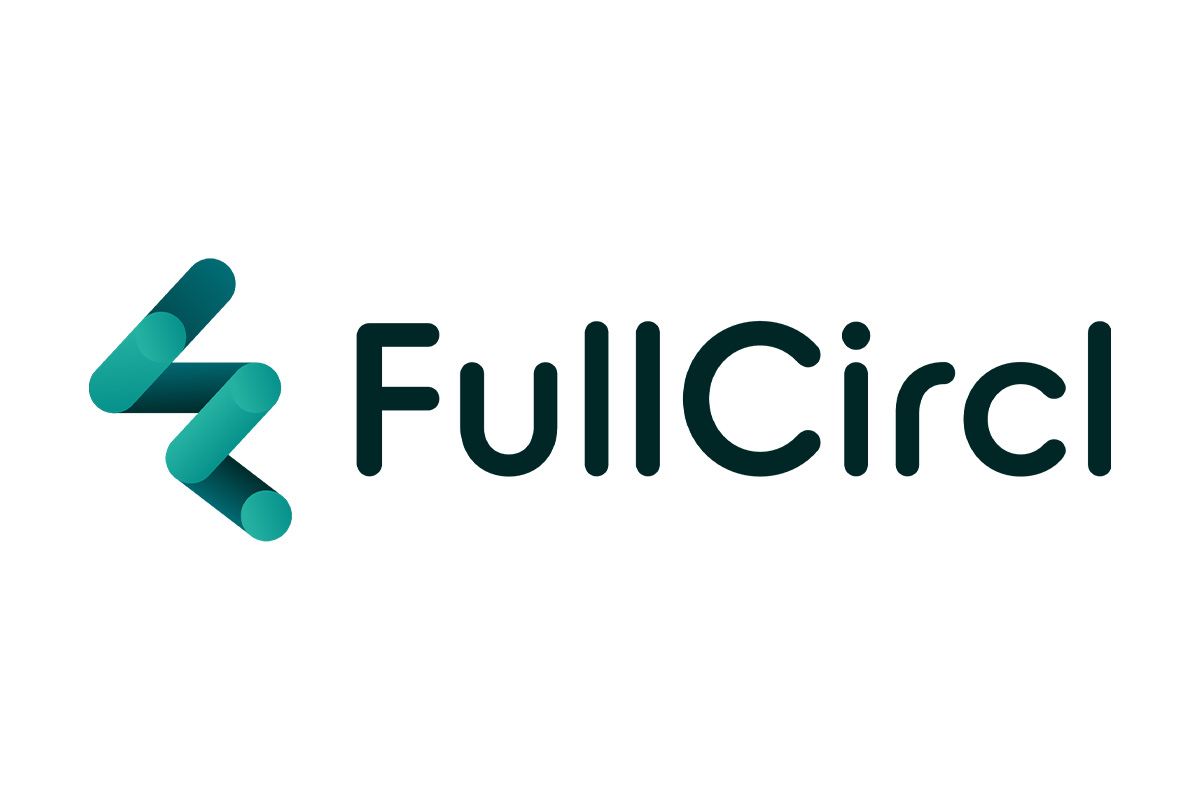Latest News
Registrations are open for the MARE BALTICUM Gaming & TECH Summit 2023 (16-17 MAY); BSG Awards 2023 & BTECH Awards 2023; new format, more industries and networking

- The leading conference in the Baltic and Nordic region returning under a new format and title
- Register to attend the live conference which will be held at Grand Hotel Kempinski Riga in Latvia between 16-17 May 2023
- Topics in the agenda for 2023: iGaming, eSports, Blockchain, Artificial Intelligence, Fintech, FashionTech, Virtual Reality, Mobility, Climate Change, EdTech
After announcing the registration kick-off for PRAGUE GAMING & TECH SUMMIT, the #hipthers are ready and excited to announce that the registrations for MARE BALTICUM GAMING & TECH SUMMIT are now also open. The MARE BALTICUM Summit is part of the events collection which in 2023 will receive a complete makeover.
By combining multiple industries that are already cooperating in certain ways, a new conference is born, the MARE BALTICUM GAMING & TECH SUMMIT.
The success of the MARE BALTICUM GAMING & TECH SUMMIT is guaranteed based on the results we have seen in the past 6 years when connecting several industry stakeholders during our summits and meetups.
The event, taking place at the Grand Hotel Kempinski Riga in Latvia, will feature 65 speakers, 300 attendees, 15 panels, two networking parties, and two award ceremonies.
“We are excited to reveal that our yearly conference in the Baltics will be combined with another conference that we are hosting in the region to synergize into a new format that further strengthens networking and learning in the Baltic and Nordic region. The new format will allow industry leaders from several industries to make new connections and share their latest news about iGaming, eSports, Blockchain, Artificial Intelligence, Fintech, FashionTech, Virtual Reality, Mobility, Climate Change, EdTech, and more. We invite you to join us in May for a two-day event with lots of opportunities for everyone involved” stated Zoltán Tűndik, Co-Founder and Head of Business at Hipther Agency
The summit has become the region’s most important in-person gathering for the past years and in 2023, the team wants to top that by adding more industries. As mentioned above, the conference series has been launched in 2018 and has enjoyed yearly growth while continuously bringing innovation to the boutique-style events landscape.
The top decision-makers and business influencers are joining the key event of the Baltic & Nordic region during Springtime and be ready to gain access to a wealth of information while also enjoying some quality networking.
C-level executives, compliance experts, government officials who are active in the iGaming, eSports, Blockchain, Artificial Intelligence, Fintech, Virtual/Augmented/Mixed Reality, FashionTech, and many more are going to share their knowledge and are ready to meet you in Riga between 16-17 May.
Participants also have the opportunity to explore the future by entering the metaverse via virtual reality goggles which, can be tested during the show.
At the moment you can enjoy a substantial discount by opting for the Early Bird Rate when registering your Delegate Pass or opting for the Combo Pass (which includes 3 nights of accommodation at the official hotel). You can find more details here: https://hipther.com/events/riga/regriga2023/
The prestigious BSG Awards and the inaugural BTECH Awards
And to top all the talks, discussions, and networking opportunities, the organizers are also continuing the traditional Baltic and Scandinavian Gaming Awards (BSG Awards) and launching a new yearly award that aims to reward the Baltic TECH companies for their achievements in the region. The categories for the Baltic TECH Awards (BTECH Awards) are the following:
- AI: Best Startup
- AI: Rising Star
- AI: Company of the Year
- Blockchain: Best Startup
- Blockchain: Rising Star
- Blockchain: Company of the Year
- Fintech: Best Startup
- Fintech: Rising Star
- Fintech: Company of the Year
The nomination phase for both BSG Awards and BTECH Awards will open at the beginning of November. Watch this space for the official announcement with all categories.
As always, the team is continuing their initiative for a sustainable future are taking even more steps that directly impact the conservation of the planet’s ecosystem and biodiversity
Additionally, make sure to keep an eye on the European Gaming Quarterly Meetups, which also offer a virtual opportunity to stay up to date with the gaming industry throughout the year.
Hipther Agency is the parent brand of European Gaming, PICANTE, WireUp Zone, Gaming Americas, eSports Connect, the HIPTHER news app, and the WireUp networking app found on the Play Store.
To receive constant updates from the HIPTHER network and conference agenda updates, subscribe here: http://eepurl.com/hfyZxf
For sponsorship/speaking inquiries, make sure to reach out to Zoltan Tuendik (Co-Founder and Head of Business at Hipther) at z[email protected]
For media-related inquiries, please contact Alexandru Marginean (Marketing Specialist at Hipther) at [email protected]
Hipther Agency press contacts:
Zoltan Tuendik, Head of Business
[email protected], +40 735 559 234
Alex Marginean, Marketing Specialist
[email protected], +40 731 394 220
Latest News
To view, develop China-Germany bilateral relations from long-term, strategic perspective
BEIJING, April 19, 2024 /PRNewswire/ — A report from People’s Daily: On the morning of April 16, Chinese President Xi Jinping met with German Chancellor Olaf Scholz in Beijing. This is Scholz’s second visit to China since he took office, and Scholz is the first leader of a major Western country to visit China this year. The two leaders exchanged views on bilateral relations and international and regional issues of mutual interest.
Xi called on the two countries need to view and develop bilateral relations from a long-term and strategic perspective, and work together to inject greater stability and certainty into the world. His remarks have charted the course for the two countries to further advance bilateral relations and to jointly contribute more to world peace and prosperity under new circumstances.
Over the past 50-plus years since the establishment of diplomatic ties, China and Germany have enjoyed robust bilateral relations. The two countries have had close exchanges at all levels and in all fields.
China’s policy toward Germany is highly stable and consistent. China always views Germany as its important partner of mutually beneficial cooperation and supports Germany in playing a more important role in Europe and the wider world.
The two sides successfully held the intergovernmental consultation and high-level dialogues on strategic and financial issues, and will hold a dialogue on climate change and green transition. As long as the two sides uphold mutual respect, seek common ground while reserving differences, enhance exchanges and mutual learning, and pursue win-win cooperation, China–Germany relations will continue to enjoy solid and sustained progress.
This year marks the 10th anniversary of the establishment of the all-round strategic partnership between China and Germany. Over the past 10 years, despite tremendous changes in the international landscape, China–Germany relations have maintained steady growth, and bilateral cooperation has been strengthened and deepened across the board, providing impetus for the development of both countries.
Both history and reality have proved that the all-round strategic partnership is an inevitable choice and the optimal solution for China–Germany relations.
The more instability in the world, the greater the need for the two sides to strengthen the resilience and vitality of their relations, Xi said, calling for joint efforts to keep to the overall direction of cooperation and development in growing bilateral ties, and stick to the characterization of all-round strategic partnership.
Scholz said that going forward, the German side will work with the Chinese side to strengthen bilateral ties, deepen dialogue and cooperation in all fields, and promote people-to-people exchanges in such areas as education and culture.
Enhancing mutual understanding and trust, and strengthening dialogue and communication will contribute to the healthy and stable development of the all-round strategic partnership between the two countries.
Both China and Germany have deeply engaged in and benefited from each other’s development, with pragmatic cooperation always being the defining feature of China–Germany relations.
China and Germany are important trading partners for each other. Germany has been China’s largest trading partner in Europe for 49 consecutive years, while China has been Germany’s largest trading partner for eight consecutive years.
According to a report by German Economic Institute (IW), in 2023, German direct investment in China increased by 4.3 percent year on year to a record high of 11.9 billion euros ($12.7 billion).
In the face of weak global economic recovery and rising protectionism, German investment in China has remained strong. Thousands of German companies and institutions are actively engaged in the Chinese market, which once again demonstrates that mutually beneficial cooperation between China and Germany is not a “risk,” but the guarantee for a stable bilateral relationship and an opportunity for the future.
There is huge potential to be tapped for pursuing win-win cooperation in both traditional sectors such as machinery and automobile, and new areas such as green transition, digitization and artificial intelligence.
This time, Scholz visited Chongqing and Shanghai together with representatives of the German business community, and witnessed the great economic progress China made over recent years. He said that Germany opposes protectionism and supports free trade.
It is important for the two countries to adopt an objective and dialectical view on the issue of production capacity through a market and global perspective and based on the laws of economics, and devote more efforts to the discussion on cooperation, which will bring bilateral economic and trade cooperation to a new level and inject continuous impetus into global economic recovery.
As China and Germany are respectively the second and third largest economies in the world, the consolidation and development of their relations carries significance that goes beyond the bilateral scope, and has a major impact on the Eurasian continent and the entire world.
China and Germany share a lot in common on the issue of world multipolarity. Both of them support globalization and international cooperation.
Xi pointed out that a multipolar world is, in essence, one where countries with different civilizations, systems and paths respect each other and coexist in peace. China and Germany need to independently carry out collaboration on multilateral fronts, push the international community to take real actions to better address global challenges such as climate change, unbalanced development and regional conflicts, and make greater contribution to the balance and stability of the world.
Xi and Scholz reached consensus on the Ukraine crisis, Palestinian-Israeli conflict and other issues, which will inject greater stability and certainty into a turbulent and intertwined world.
China and Germany do not have clashing fundamental interests between them and pose no security threat to each other. Cooperation between the two countries benefits not just the two sides but also the world at large.
Both sides should cherish and inherit the valuable experience of the development of bilateral relations, constantly enhance mutual understanding and trust, and deepen practical cooperation, so as to inject new impetus into the all-round strategic partnership between China and Germany, and make greater contributions to world peace, stability, and growth.
View original content:https://www.prnewswire.co.uk/news-releases/to-view-develop-china-germany-bilateral-relations-from-long-term-strategic-perspective-302121956.html

Latest News
HTX Ventures Announces Strategic Investment in Merkle 3s Capital to Accelerate Web3 Innovation
SINGAPORE, April 19, 2024 /PRNewswire/ — HTX Ventures, the global investment arm of the cryptocurrency exchange HTX, has officially announced a strategic investment in Merkle 3s Capital, an innovative hybrid Global Web3 Fund based in Hong Kong, dedicated to the research and development of blockchain technologies. This investment highlights HTX Ventures’ commitment to fostering innovation and supporting scalable Web3 technology development globally.
Merkle 3s Capital stands at the forefront of identifying and capitalizing on the next wave of market consensus, with a strategy that includes diverse investments in projects across both primary and secondary markets. With over a decade of industry experience and a portfolio that includes more than 100 investments across various blockchain ecosystems, Merkle 3s Capital has established itself as a key player in the Web3 space. The firm supports significant projects like Core, TON and Solana, leveraging its robust connections with leading crypto exchanges and top universities to advance technological innovation and global impact.
Edward, Managing Partner at HTX Ventures, emphasized the strategic value of the investment, stating, “We are pleased to welcome Merkle 3s Capital as one of our strategic partners through this investment. HTX Ventures is committed to our mission to support promising companies such as Merkle 3s Capital and develop the next generation of technological innovations. We continue to expand and diversify our Fund of Funds portfolio, while solidifying our position as a strong global investment leader.”
Sarah, Founding Partner at Merkle 3s Capital, said, “Merkle 3s Capital aims to empower top-notch technologists and entrepreneurs to build high-impact Web 3 and digital economy projects around the world. To achieve that, we lean on our network of strategic partners with resources including the best academic institutions, exchanges and communities. The investment from HTX Ventures will allow Merkle 3s Capital to continuously strengthen our resource pool and accelerate the growth of our portfolio projects.”
About HTX Ventures
HTX Ventures, the global investment division of HTX, integrates investment, incubation, and research to identify the best and brightest teams worldwide. With a decade-long history as an industry pioneer, HTX Ventures excels at identifying cutting-edge technologies and emerging business models within the sector. To foster growth within the blockchain ecosystem, we provide comprehensive support to projects, including financing, resources, and strategic advice.
HTX Ventures currently backs over 200 projects spanning multiple blockchain sectors, with select high-quality initiatives already trading on the HTX exchange. Furthermore, as one of the most active Fund of Funds (FOF) investors, HTX Ventures collaboratively forges the blockchain ecosystem alongside premier global blockchain funds, including Dragonfly, Bankless Ventures, Animoca, Shima, and IVC. Visit us here.
Contact Details
Michael Wang
[email protected]
Company Website
https://www.htx.com/en-us/ventures
About Merkle 3s Capital
Merkle 3s Capital is a Hong Kong-based venture capital firm specializing in hybrid crypto funds. Our expertise and experience in the industry span over 10 years, with a previous portfolio of more than 100 investments across the blockchain ecosystems. We pride ourselves on our team of experienced partners dedicated to leading the industry toward worldwide impact. Visit us here.
Logo – https://mma.prnewswire.com/media/2391903/image_ID__Logo.jpg
![]() View original content:https://www.prnewswire.co.uk/news-releases/htx-ventures-announces-strategic-investment-in-merkle-3s-capital-to-accelerate-web3-innovation-302121916.html
View original content:https://www.prnewswire.co.uk/news-releases/htx-ventures-announces-strategic-investment-in-merkle-3s-capital-to-accelerate-web3-innovation-302121916.html

Fintech
How to identify authenticity in crypto influencer channels

Modern brands stake on influencer marketing, with 76% of users making a purchase after seeing a product on social media.The cryptocurrency industry is no exception to this trend. However, promoting crypto products through influencer marketing can be particularly challenging. Crypto influencers pose a significant risk to a brand’s reputation and ROI due to rampant scams. Approximately 80% of channels provide fake statistics, including followers counts and engagement metrics. Additionally, this niche is characterized by high CPMs, which can increase the risk of financial loss for brands.
In this article Nadia Bubennnikova, Head of agency Famesters, will explore the most important things to look for in crypto channels to find the perfect match for influencer marketing collaborations.
-
Comments
There are several levels related to this point.
LEVEL 1
Analyze approximately 10 of the channel’s latest videos, looking through the comments to ensure they are not purchased from dubious sources. For example, such comments as “Yes sir, great video!”; “Thanks!”; “Love you man!”; “Quality content”, and others most certainly are bot-generated and should be avoided.
Just to compare:


LEVEL 2
Don’t rush to conclude that you’ve discovered the perfect crypto channel just because you’ve come across some logical comments that align with the video’s topic. This may seem controversial, but it’s important to dive deeper. When you encounter a channel with logical comments, ensure that they are unique and not duplicated under the description box. Some creators are smarter than just buying comments from the first link that Google shows you when you search “buy YouTube comments”. They generate topics, provide multiple examples, or upload lists of examples, all produced by AI. You can either manually review the comments or use a script to parse all the YouTube comments into an Excel file. Then, add a formula to highlight any duplicates.

LEVEL 3
It is also a must to check the names of the profiles that leave the comments: most of the bot-generated comments are easy to track: they will all have the usernames made of random symbols and numbers, random first and last name combinations, “Habibi”, etc. No profile pictures on all comments is also a red flag.
LEVEL 4
Another important factor to consider when assessing comment authenticity is the posting date. If all the comments were posted on the same day, it’s likely that the traffic was purchased.
2. Average views number per video
This is indeed one of the key metrics to consider when selecting an influencer for collaboration, regardless of the product type. What specific factors should we focus on?
First & foremost: the views dynamics on the channel. The most desirable type of YouTube channel in terms of views is one that maintains stable viewership across all of its videos. This stability serves as proof of an active and loyal audience genuinely interested in the creator’s content, unlike channels where views vary significantly from one video to another.
Many unauthentic crypto channels not only buy YouTube comments but also invest in increasing video views to create the impression of stability. So, what exactly should we look at in terms of views? Firstly, calculate the average number of views based on the ten latest videos. Then, compare this figure to the views of the most recent videos posted within the past week. If you notice that these new videos have nearly the same number of views as those posted a month or two ago, it’s a clear red flag. Typically, a YouTube channel experiences lower views on new videos, with the number increasing organically each day as the audience engages with the content. If you see a video posted just three days ago already garnering 30k views, matching the total views of older videos, it’s a sign of fraudulent traffic purchased to create the illusion of view stability.
3. Influencer’s channel statistics
The primary statistics of interest are region and demographic split, and sometimes the device types of the viewers.
LEVEL 1
When reviewing the shared statistics, the first step is to request a video screencast instead of a simple screenshot. This is because it takes more time to organically edit a video than a screenshot, making it harder to manipulate the statistics. If the creator refuses, step two (if only screenshots are provided) is to download them and check the file’s properties on your computer. Look for details such as whether it was created with Adobe Photoshop or the color profile, typically Adobe RGB, to determine if the screenshot has been edited.
LEVEL 2
After confirming the authenticity of the stats screenshot, it’s crucial to analyze the data. For instance, if you’re examining a channel conducted in Spanish with all videos filmed in the same language, it would raise concerns to find a significant audience from countries like India or Turkey. This discrepancy, where the audience doesn’t align with regions known for speaking the language, is a red flag.
If we’re considering an English-language crypto channel, it typically suggests an international audience, as English’s global use for quality educational content on niche topics like crypto. However, certain considerations apply. For instance, if an English-speaking channel shows a significant percentage of Polish viewers (15% to 30%) without any mention of the Polish language, it could indicate fake followers and views. However, if the channel’s creator is Polish, occasionally posts videos in Polish alongside English, and receives Polish comments, it’s important not to rush to conclusions.
 Example of statistics
Example of statistics
Wrapping up
These are the main factors to consider when selecting an influencer to promote your crypto product. Once you’ve launched the campaign, there are also some markers to show which creators did bring the authentic traffic and which used some tools to create the illusion of an active and engaged audience. While this may seem obvious, it’s still worth mentioning. After the video is posted, allow 5-7 days for it to accumulate a basic number of views, then check performance metrics such as views, clicks, click-through rate (CTR), signups, and conversion rate (CR) from clicks to signups.
If you overlooked some red flags when selecting crypto channels for your launch, you might find the following outcomes: channels with high views numbers and high CTRs, demonstrating the real interest of the audience, yet with remarkably low conversion rates. In the worst-case scenario, you might witness thousands of clicks resulting in zero to just a few signups. While this might suggest technical issues in other industries, in crypto campaigns it indicates that the creator engaged in the campaign not only bought fake views and comments but also link clicks. And this happens more often than you may realize.
Summing up, choosing the right crypto creator to promote your product is indeed a tricky job that requires a lot of resources to be put into the search process.

Author
Nadia Bubennikova, Head of agency at Famesters
-
Latest News7 days ago
DEMAND AT ASIAN FACTORIES RISES AT STRONGEST RATE IN OVER 2 YEARS, IMPROVING NEAR-TERM GROWTH OUTLOOK FOR MANUFACTURING WORLDWIDE: GEP GLOBAL SUPPLY CHAIN VOLATILITY INDEX
-
Latest News7 days ago
Global Airlines Appoints New Head of Finance from KPMG
-
Latest News6 days ago
“The Hainan FTP and Me”: Looking at Hainan’s Transformations
-
Latest News7 days ago
Spendesk combines procurement with spend management through Okko acquisition
-
Latest News7 days ago
BtcTurk Organizes Half Marathon in Istanbul to Celebrate Halving Period
-
Latest News4 days ago
Millions of people unite around doing good on the 18th International Good Deeds Day held yesterday worldwide
-
Latest News7 days ago
Bitget to Take Center Stage at Blockchain Life and Token2049 Dubai
-
Latest News7 days ago
IMC Pan Asia Alliance Is Now Known as Tsao Pao Chee Group












